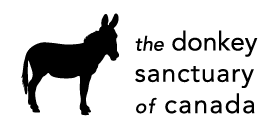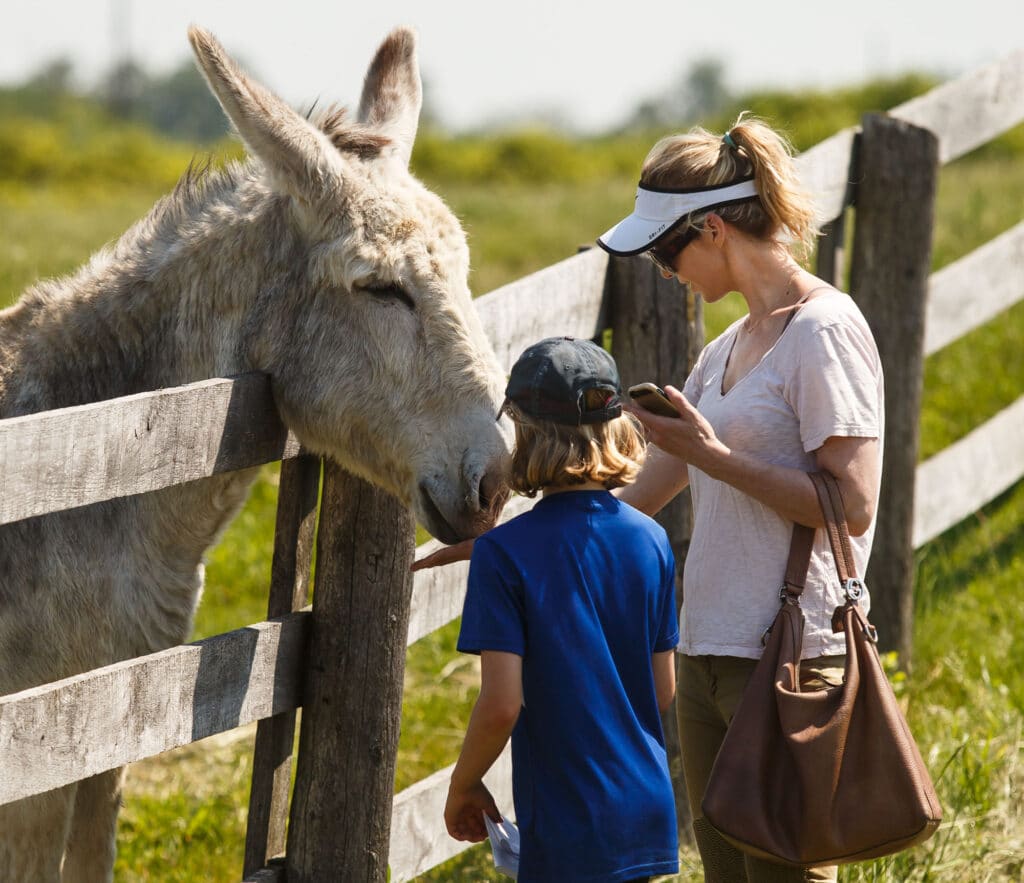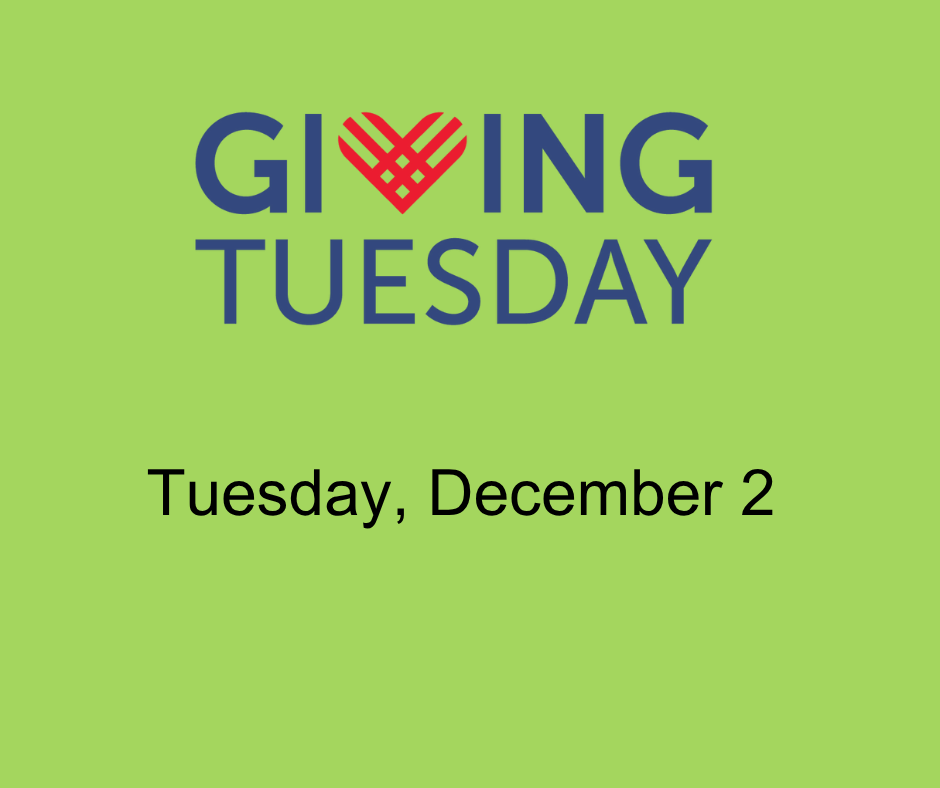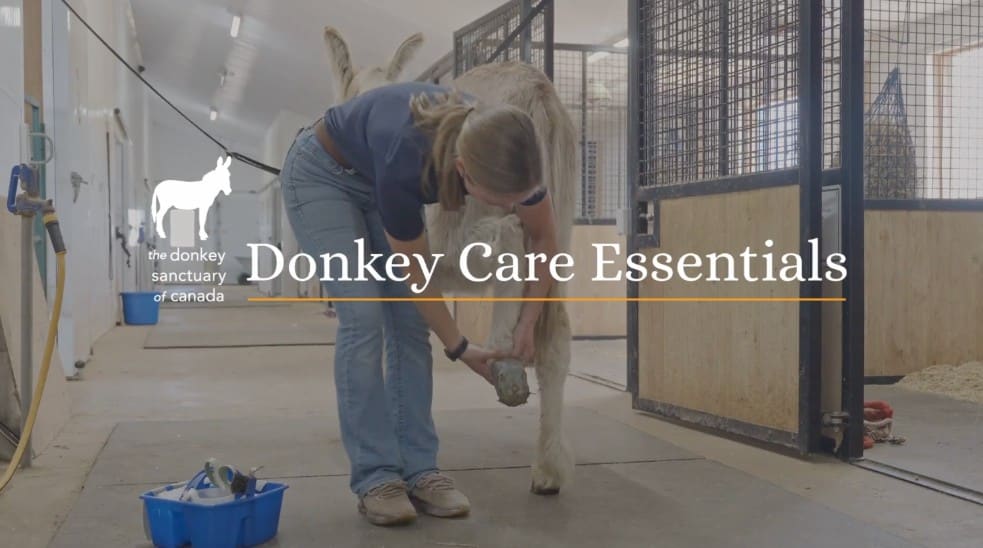If you’re familiar with caring for horses or ponies, you might assume that feeding donkeys is similar. But, donkeys have unique dietary needs that are necessary for the donkey caregiver to understand. In this post, we’ll explore the essentials of donkey nutrition, highlight some differences from feeding other equines, and share a little guidance on what to feed and what to avoid.
Key nutritional needs of donkeys
Donkeys evolved to thrive in arid and semi-arid environments, in which food sources were sparse and low in nutrients. Unlike horses, which may graze on lush pastures without consequence (as a rule), donkeys need a different sort of diet—one that’s low in calories and high in fibre. A donkey’s digestive system is highly efficient at extracting nutrients from poor-quality forage, which unfortunately means they can easily become overweight if fed a rich diet.
Fibre, fibre, fibre: The primary component of a donkey’s diet should be high-fibre forage, such as straw or mature hay. Barley straw is often a great choice, as it provides bulk without excessive calories. If hay is used, it should be late-cut and of lower nutritional value.
We feel the UK’s Donkey Sanctuary (the sanctuary upon which the DSC is modelled) sums it up perfectly:
An average sized (175 kg) healthy, adult donkey needs 2-3 kg of fibrous food per day to satisfy their appetite. In the majority of cases this should be solely provided by straw, hay/haylage or restricted grazing plus a vitamin and mineral balancer. If your donkey has no dental problems, feed a diet of 75% straw in summer and 50% straw in winter. Make up the remainder of their diet with hay or haylage, or restricted grazing.
Source: https://www.thedonkeysanctuary.org.uk/for-owners/food-for-donkeys/feeding-donkeys
Differences from horse and pony diets
One of the main differences between feeding donkeys and other equines is their lower requirement for concentrated feeds (grains). While horses and ponies may benefit from grains or pelleted feeds to meet energy demands, donkeys rarely need these unless they are working or in poor condition. Even then, it’s essential to provide low-calorie, high-fibre feeds designed specifically for donkeys or “easy keepers.”
Avoid rich pasture: Unlike horses, donkeys should not be kept on lush, green pastures, as this can lead to obesity and metabolic disorders. If you have both horses and donkeys, consider creating separate grazing areas. If a mixed-species pasture is unavoidable, limit grazing time for your donkey(s).
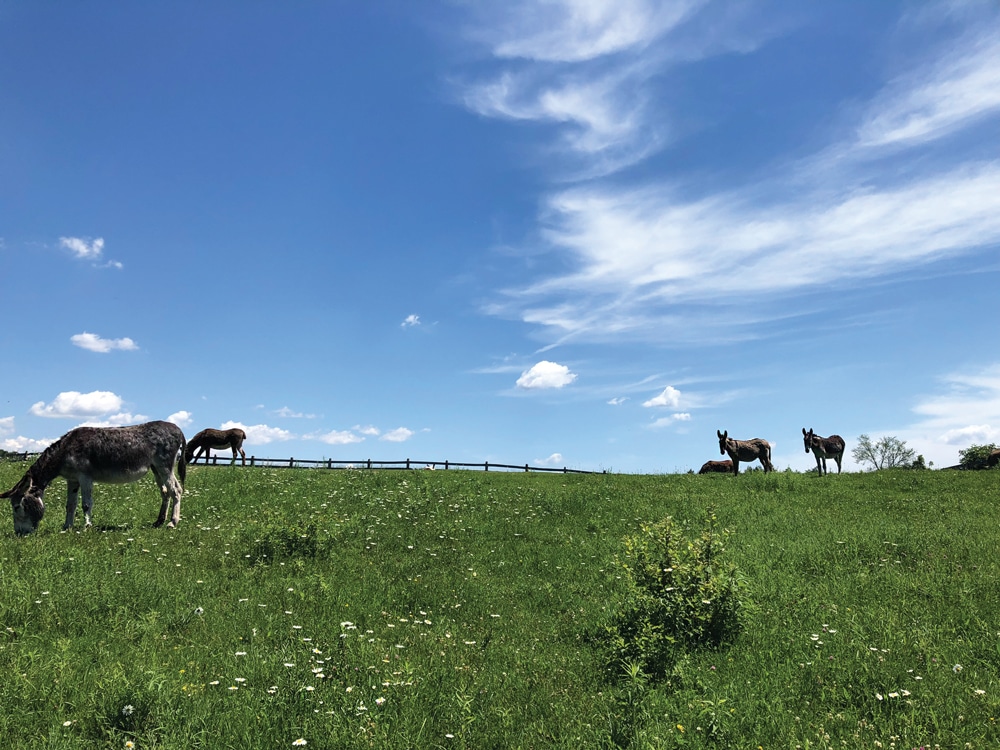
Safe treats and supplements
While treats can be a nice way to bond with your donkey, they should be given sparingly. Suitable treats include small amounts of carrots, apples, or other low-sugar fruits and vegetables. Do not give donkeys sugary or starchy treats, which can upset their digestive system and will contribute to weight gain. If you must feed treats to your donkey (or if you’re using food as a training aid), be careful to feed no more than a handful of chopped apple or carrot per day.
Mineral needs: Donkeys, like all equines, require a balanced intake of minerals. A salt block or mineral lick specifically formulated for donkeys or horses can help meet these needs. Be cautious with supplements, as over-supplementation can be harmful. Always consult with a veterinarian before adding supplements to your donkey’s diet.
Monitoring body condition and health
Due to their efficient metabolism, donkeys are prone to obesity, which can lead to health issues like laminitis. Monitor your donkey’s body condition by feeling along their ribs, backbone, and neck. A healthy donkey should have a slight fat cover but should not be overweight.
It’s also essential to monitor their droppings, as changes in consistency or frequency can indicate dietary imbalances or health problems. Make sure there’s constant access to clean water, as hydration is a component of digestive health.
Feeding donkeys requires consideration of their unique dietary needs, which differ from those of horses or ponies. By providing a high-fibre, low-calorie diet and avoiding rich pastures, you can help keep your donkey in good health!
Looking for more information about donkey nutrition? The (UK) Donkey Sanctuary is the gold standard for everything donkeys, including nutrition, and we refer to their guidance often:
https://www.thedonkeysanctuary.org.uk/for-owners/food-for-donkeys
